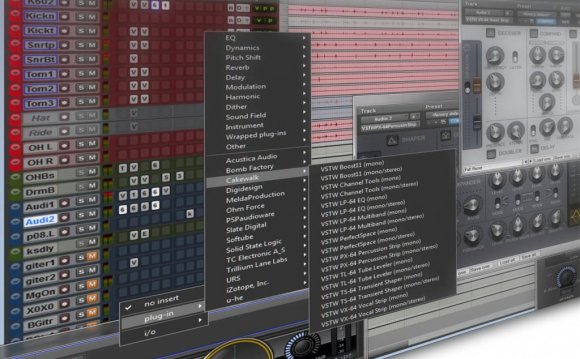
For up-and-coming audio engineers and songs producers, it is crucial to possess an excellent doing work knowledge of the normal software programs used in the recording studio. Because increase of electronic technology features audio engineers the capacity to do even more things for less cash, recording studios tend to be depending more and more on computer programs programs for his or her recording, signal handling and blending jobs, usually through the use of several digital audio workstation (DAW) programs, along with a range of plug-ins according to the designers’ preferences.
Simply put, the more you realize about these software programs (and much more certain programs you will be familiar with), the greater amount of versatile and useful you’re going to be within the studio, therefore the more studios you’ll be qualified to operate in. Let me reveal a quick overview of some of the more widespread applications you’ll find in the typical recording studio.
PRO RESOURCES
If you’re planning discover any DAW, discover this. Pro Tools may be the existing business standard in contemporary recording studios, basically loading all features of recording, editing, sign processing and blending into one extremely functional computer system system. In majority of recording studios, you won’t be able to find your way across the workflow without a good knowledge of this powerful tool. This is the reason the Recording Connection combines Pro Tools training in to the curriculum for each apprentice (extern).
LOGIC PRO
Designed exclusively for Mac people, this effective DAW is rapidly becoming a competition the Pro Tools individual, having not merely similar fundamental abilities as Pro Tools, but also integrating a huge (and expandable) library of virtual devices and plug-ins for composing and producing songs “in the container” via MIDI. Logic Pro is highly popular with electric performers, sound manufacturers and self-producing composers and songwriters, so recording studios that slim toward these procedures will have a version of Logic Pro in addition to Pro Tools—likewise, studios that use Mac computers.
REASON
Another preferred DAW, factor provides lots of the exact same recording/mixing attributes of Pro Tools, but its specialty could be the display of a “virtual rack” which simulates the aspects of the equipment rack mounts inside studio—complete with a “toggle rack” purpose that allows the professional to configure the virtual connections between the components all via computer system. Engineers who're specially limited to rack-mounted equipment especially enjoy particularly this software.
ABLETON LIVE
This DAW provides particularly on digital musician and performer, providing in-the-box recording, mixing and signal processing and an extraordinary selection of on-board synths, samplers and drum devices. Ableton’s certain benefit is that it offers the producer, engineer or musician to do some sophisticated arranging, beat coordinating, mixing and editing in real time or on-the-fly through its Session see workspace. This will make it not only effective for fast blending, looping and organizing, also for live performance. You’re most likely to see this pc software in recording studios which are frequently inhabited by electric songs producers and club DJs.
FL STUDIO (previously “FRUITY LOOPS”)
It is another popular software package with digital musicians and DJs just who make use of it when it comes to creation of loops and sample-based songs, in a choice of combination with or perhaps in lieu of Ableton Live.
SONAR
Generated by Cakewalk, SONAR is an all-purpose DAW which basically a rival with Professional Tools. Although some studio designers prefer it over professional Tools for its simplicity, the drawback is it is at this time a Windows-only system, so only studios just who use PC computer systems will have any use because of it.
COMPREHENSION PLUG-INS
For of the DAWs mentioned above—or any other people we performedn’t mention—having an understanding of plug-ins is important. A plug-in is yet another sub-program that works inside a DAW, and it is put on paths or buses as needed by the professional. Numerous DAWs come equipped with a collection of plug-ins, even though many designers (particularly Waves and Native tools) create 3rd party plug-ins which can be integrated with all the DAW computer software. In a recording studio, plug-ins are mainly utilized for results or signal handling (age.g., reverb, compression, delay, chorusing, EQ), but additionally consist of MIDI-controlled digital instrument libraries and a wide range of other specific functions. Each sound engineer has a popular collection of plug-ins that he or she uses on a regular basis, and again, the greater amount of you know towards different plug-ins available, the greater versatile you’ll take the studio, and also the even more tools you’ll need utilize as you learn how to craft a mixes.
Nowadays, sound engineering involves a lot more than microphone placement, signal movement and working with gear; additionally requires a doing work understanding of the most popular software packages in the studio. When you have a pursuit in mastering a particular DAW, the tracking Connection can place you with a mentor who is competent thereupon computer software and can explain to you the ropes.









